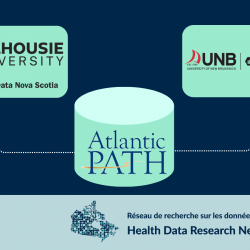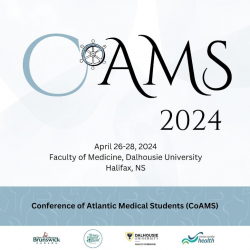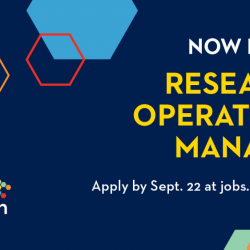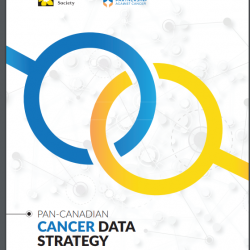FOR IMMEDIATE RELEASE – Wednesday, June 5, 2024 Predicting chronic disease enabled by New Brunswick and Nova Scotia data linkage Predicting chronic disease has gotten faster and simpler with the linkage of data gathered from a longitudinal study involving over 34,000 participants and administrative health data routinely gathered by New Brunswick and Nova Scotia. A collaboration between the Atlantic Partnership for Tomorrow’s Health (Atlantic PATH) and New Brunswick Institute for Research, Data & Training (NB-IRDT), and Health Data Nova Scotia (HDNS) is an important opportunity for advancing health research. “I am absolutely thrilled to see these linkages happen,” said Dr. Robin Urquhart, Atlantic PATH Scientific Director. “Atlantic PATH is an incredibly rich resource to understand the health of Atlantic Canadians and all of the different factors, like our biology, behaviours, and environments, that impact our health. This new linkage activity makes our resource more powerful, giving us access to different sources of data to answer complex health questions affecting all Atlantic Canadians.” Atlantic PATH follows the health of participants from all four Atlantic Canadian provinces to help researchers discover why some people develop certain chronic diseases and cancers and others don’t in order to advance prevention and early diagnosis. Atlantic PATH is part of the Canadian Partnership for Tomorrow’s Health (CanPath), a pan-Canadian, longitudinal cohort studying Canadians’ health, behaviours and environments. “Not only is this historical, record-level data linkage activity, this work is crucial for Atlantic Canada, which has among the country’s highest rates of chronic disease and cancer,” said Dr. Ted McDonald, director of NB-IRDT. “Critically, it will enable researchers to focus on studies related to cancer and chronic disease that cannot be undertaken without linking the separate data sources. The data linkage has other important implications too, such as the potential to inform health policy and improve detection, prevention and treatment.” Based at the University of New Brunswick, NB-IRDT provides researchers with secure access to pseudonymized personal level administrative data and conducts research on policy topics to support evidence informed government decision-making. NB-IRDT is a member of Health Data Research Network Canada, a pan-Canadian network of data centres and research organizations. HDRN Canada facilitates access to multi-regional administrative data to address health challenges that cross boundaries and foster improvements in health and health equity. Within the Department of Community Health and Epidemiology at Dalhousie University, HDNS facilitates research and innovation in Nova Scotia by providing access to linkable administrative health data and analysis for research purposes in a remote, secure, controlled environment. HDNS is also a member of HDRN Canada. “This is an exciting opportunity for researchers across the Maritimes,” said Dr. Sam Stewart, director of HDNS. “Research cohorts like Atlantic PATH take a tremendous amount of work to collect, so it is paramount that we do everything we can to make that data as effective as possible. Linking Atlantic PATH data to the data resources at HDNS and NB-IRDT will enable researchers to discover key, long-term insights into the health of Canadians, and signal an important step forward in how research data can be leveraged and enhanced within the healthcare system.” “This is an exciting development, as this linkage includes data from participants in two provinces, so it is already multi-regional in nature,” said Dr. Kim McGrail, HDRN Canada Scientific Director. “It also builds on linkage of other regional CanPath cohorts across Canada, creating many new research opportunities that can help us to better understand chronic disease and how to prevent them.” New Brunswick and Nova Scotia are the first Atlantic Canadian provinces to link to Atlantic PATH, the result of a long and deliberate collaboration involving HDRN Canada, Atlantic PATH, CanPath, and administrative data holders in the four Atlantic provinces. Since the transfer of Atlantic PATH baseline data holdings to NB-IRDT and HDNS, researchers can now apply to link Atlantic PATH data to provincial administrative data holdings, such as screenings, hospitalizations, medication use, health outcomes and more. View the NB data holdings here View the NS data holdings here. MEDIA CONTACT: Dr. Kate Milberry Strategic Communications Manager HDRN Canada kate.milberry@hdrn.ca 604.306.1512










